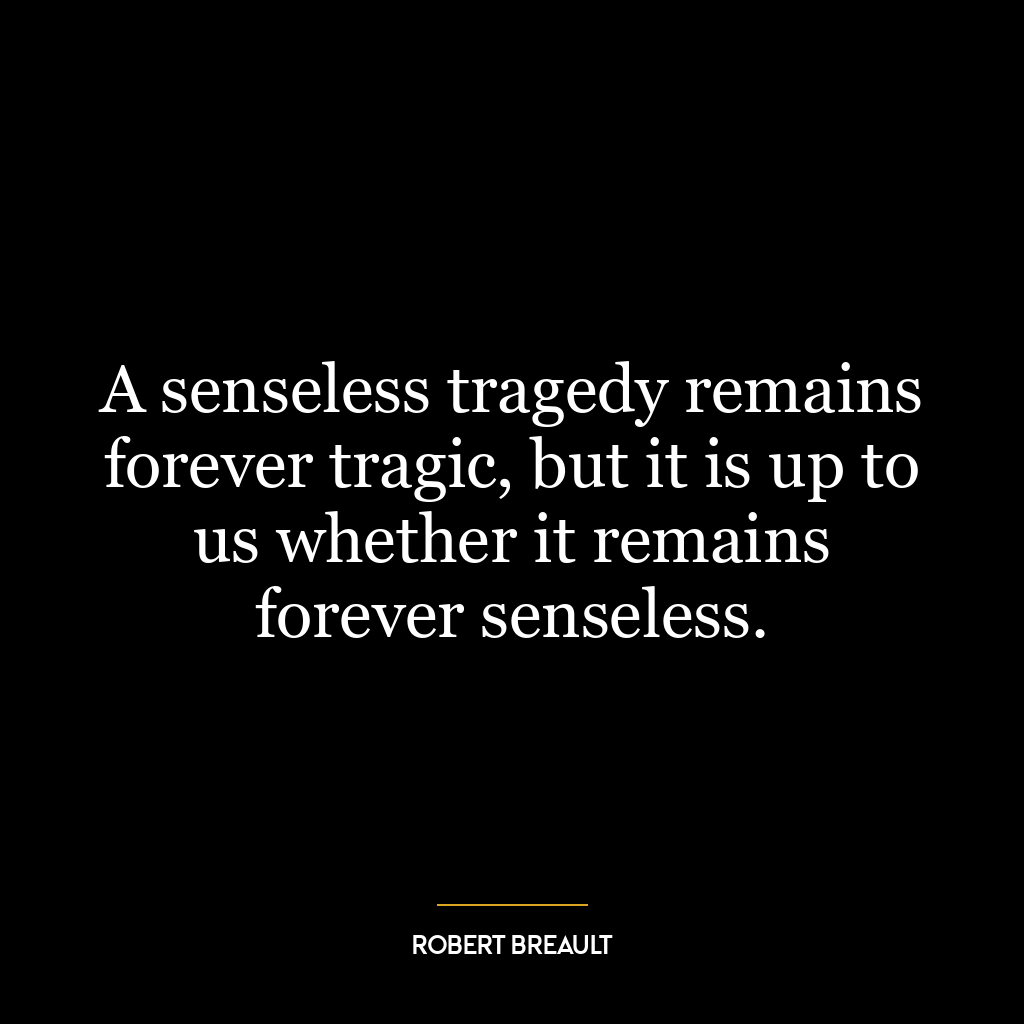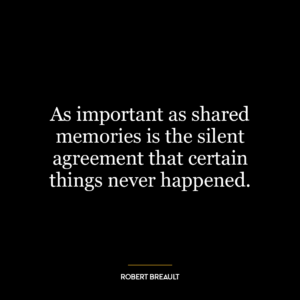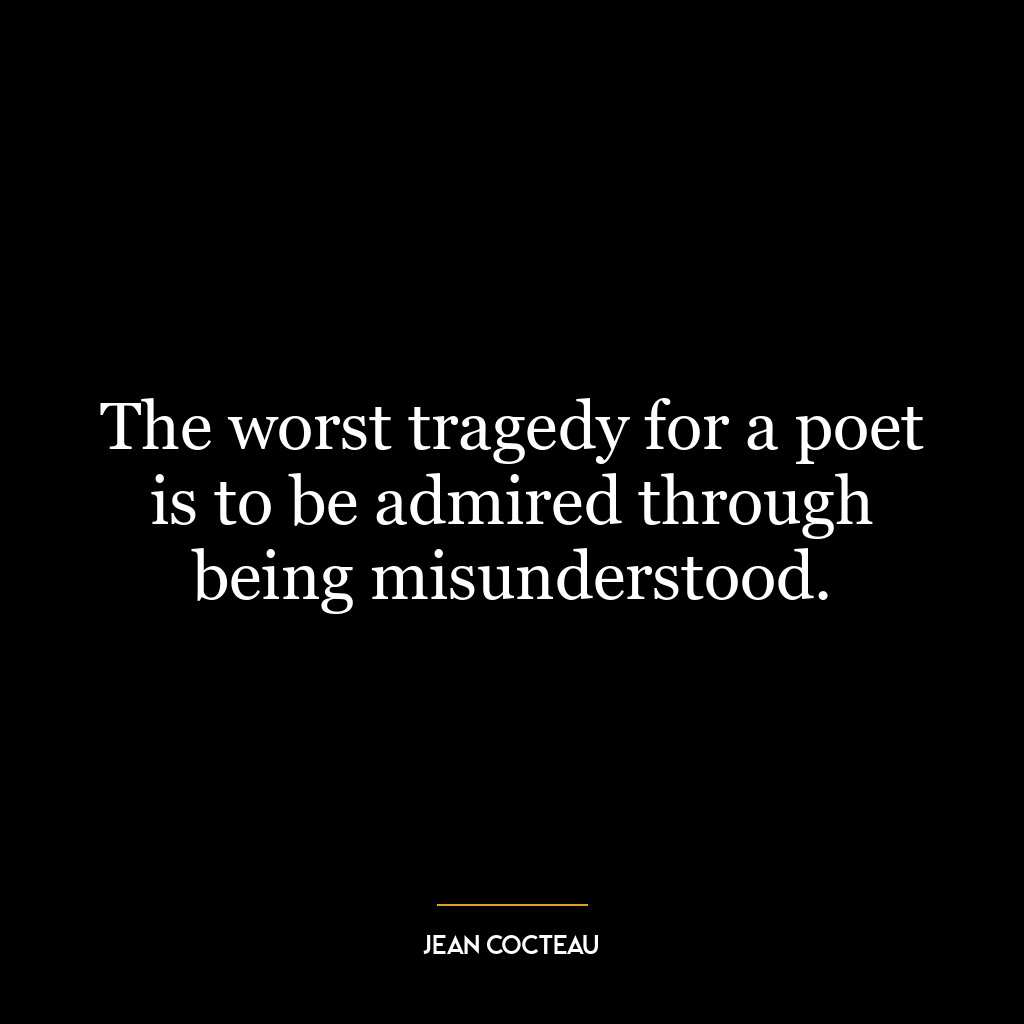A senseless tragedy remains forever tragic, but it is up to us whether it remains forever senseless.
This quote emphasizes the human capacity to find meaning and learning even in the most tragic circumstances. It suggests that while we cannot change the tragic nature of an event,we can control how we perceive it and what we take from it. The tragedy may always be heartbreaking,but its senselessness is not a fixed attribute; rather,it’s something that can alter based on our perspective and actions.
When Breault says “it is up to us whether it remains forever senseless,” he underscores our ability to derive wisdom from suffering. This could mean analyzing the factors leading up to a tragedy in order to prevent similar occurrences in future or finding personal growth amid grief by gaining new insights into life’s fragility or unpredictability.
Applying this idea to today’s world, one might consider global issues like climate change or social injustices. These tragedies seem senseless at first glance – needless destruction and suffering caused by ignorance or apathy. However, they also present opportunities for us as individuals and societies: opportunities for education, activism, policy change, technological innovation etc., thereby transforming these ‘senseless’ tragedies into catalysts for progress.
In terms of personal advancement too this concept holds potent relevance. It encourages resilience – bouncing back stronger from adversities by extracting valuable lessons from them rather of dwelling on their senselessness. As an example, someone who has undergone a devastating breakup might use that experience as an chance for self-reflection and personal growth – identifying their mistakes or shortcomings during the relationship which they can work on improving before embarking upon future relationships.
In essence then this quote implies that while pain is unavoidable in life; suffering through it without gaining anything positive out of it is optional – dependent largely upon our outlook towards adversity.















